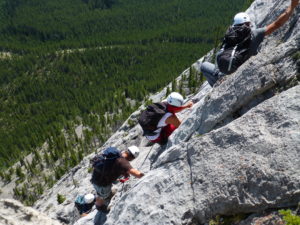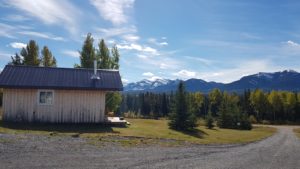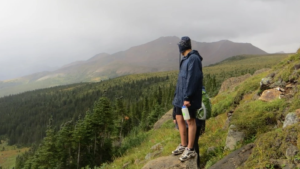This blog post was provided by Ken Schmaltz from ENVIROS.

90 deaths per month. That’s how many Albertans died from opioid overdoses in the period of January to November of 2020. July 2020 was the deadliest month on record in Alberta, with 142 deaths. That puts Alberta on course for an over 30% increase in the total of opioid overdose deaths in 2020, compared to the past few years.
This increase in deaths in 2020 is a disturbing trend across Canada. The reasons are both simple and complex. The isolation of COVID-19 restrictions has limited access to treatment programs and other supports at the same time that it has increased stress and negatively affected mental health. COVID-19 also disrupted supply chains while tainted drugs from new sources hit the street. The combination was—and continues to be—deadly.
In the face of this crisis, evidence-based addiction treatment options are needed now more than ever.
An Innovative, Intuitive & Time Honoured Approach
In 1976, a group of social workers and at-risk youth walked into the rugged Ghost Wilderness in the Rocky Mountains west of Calgary to build what would become the Enviros Wilderness School. The school used the healing powers of wilderness in what would later be known as wilderness therapy. It had never been tried before, at least like this, yet people intuitively understood the benefits of taking the youth into the mountains to grow through the challenges they faced there. Taking youth into the wild was a time-honored practice that had spawned the global Scouting movement and organizations such as Junior Forest Rangers and others.

From that walk into the woods 44 years ago, Enviros has grown into a Calgary-based social services agency with programs that range from foster care to FASD assessment and support, and from programs for young adults experiencing homelessness to live-in programs for children and youth. True to its roots, Enviros also operates the internationally-recognized Shunda Creek Wilderness Addiction Treatment Program.
Evidence-Based Addiction Treatment
Funded by Alberta Health Services and located in the Rocky Mountains near Nordegg, Shunda Creek is a 10-bed, 90-day program for men aged 18 to 24 who have addictions to opioids and other substances. These men come from across Alberta for treatment that combines more traditional group and individual therapy with hiking, climbing and paddling in the surrounding mountains. Going well beyond simply exposing clients to nature, which has its own mental health benefits, each experience is intentionally planned to lead the participants through a process of self-discovery and awareness.
There is a body of research that shows that this type of adventure therapy and wilderness programming are evidence-based addiction treatments that can produce better outcomes for the clients who come to Shunda Creek. Wilderness therapy may not be right for everyone, but for some it’s literally a lifesaver.

Some of that research is actually being done at Shunda Creek. Lee Gillis, Chair and Professor of the Psychology Department at Georgia College & State University, and Keith Russell, Professor of Health and Human Development at Western Washington University, have worked extensively with the Shunda Creek team to better understand the benefits of wilderness therapy. Their research has been published in prestigious journals such as Psychotherapy. Shunda Creek is featured in the university textbook “Adventure Therapy,” and the Adventure Therapy Experience Scale that Gillis and Russell developed with Shunda Creek is now used by other wilderness programs around the world.
Ongoing Peer Support
Research is well and good, but it’s the results—the people behind the research and the lives that have been saved—that matter. The video of Shunda Creek alumni and staff that was produced for CanadaHelps’ 20th anniversary can show and tell that story far better than this article can.
For the men who returned home after 90-days at Shunda Creek, their ongoing recovery is supported by an Alumni Peer Support Program that is facilitated by alumni who are trained in peer mentorship. Connection with fellow alumni is maintained by regular COVID-19-friendly online and in-person meetings, and weekend retreats at Shunda Creek.
Donations to the Enviros Shunda Creek program are dedicated to the Alumni Peer Support Program to ensure that each individual has the ongoing support of the community behind them for as long as they want or need it to help prevent them from becoming another overdose statistic.
To celebrate CanadaHelps’ 20th anniversary, Enviros took part in a video series to highlight how charities touch all of our lives, every day. Watch how Enviros is making a big impact in our film below. And watch the rest of the video series on our website.